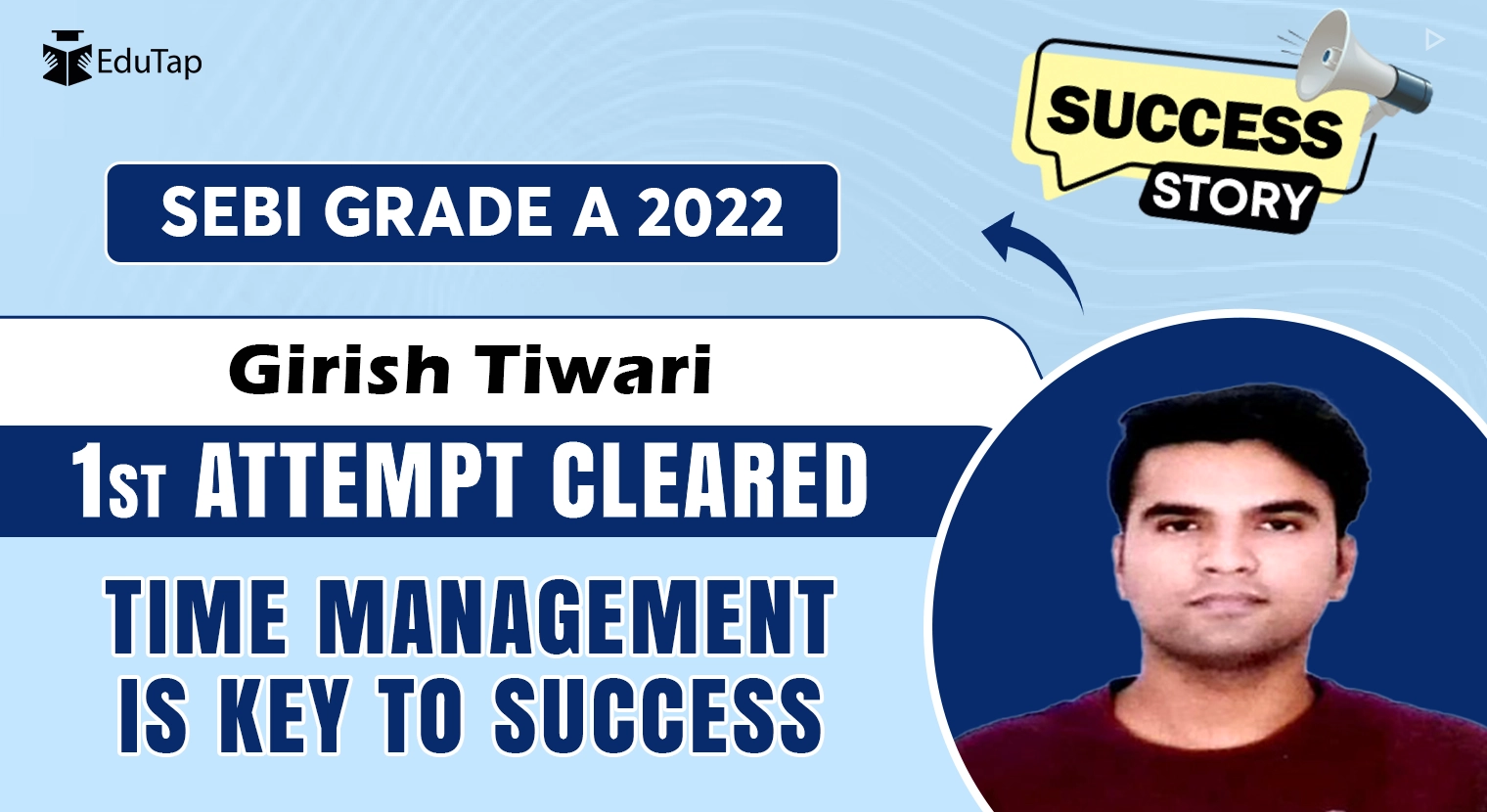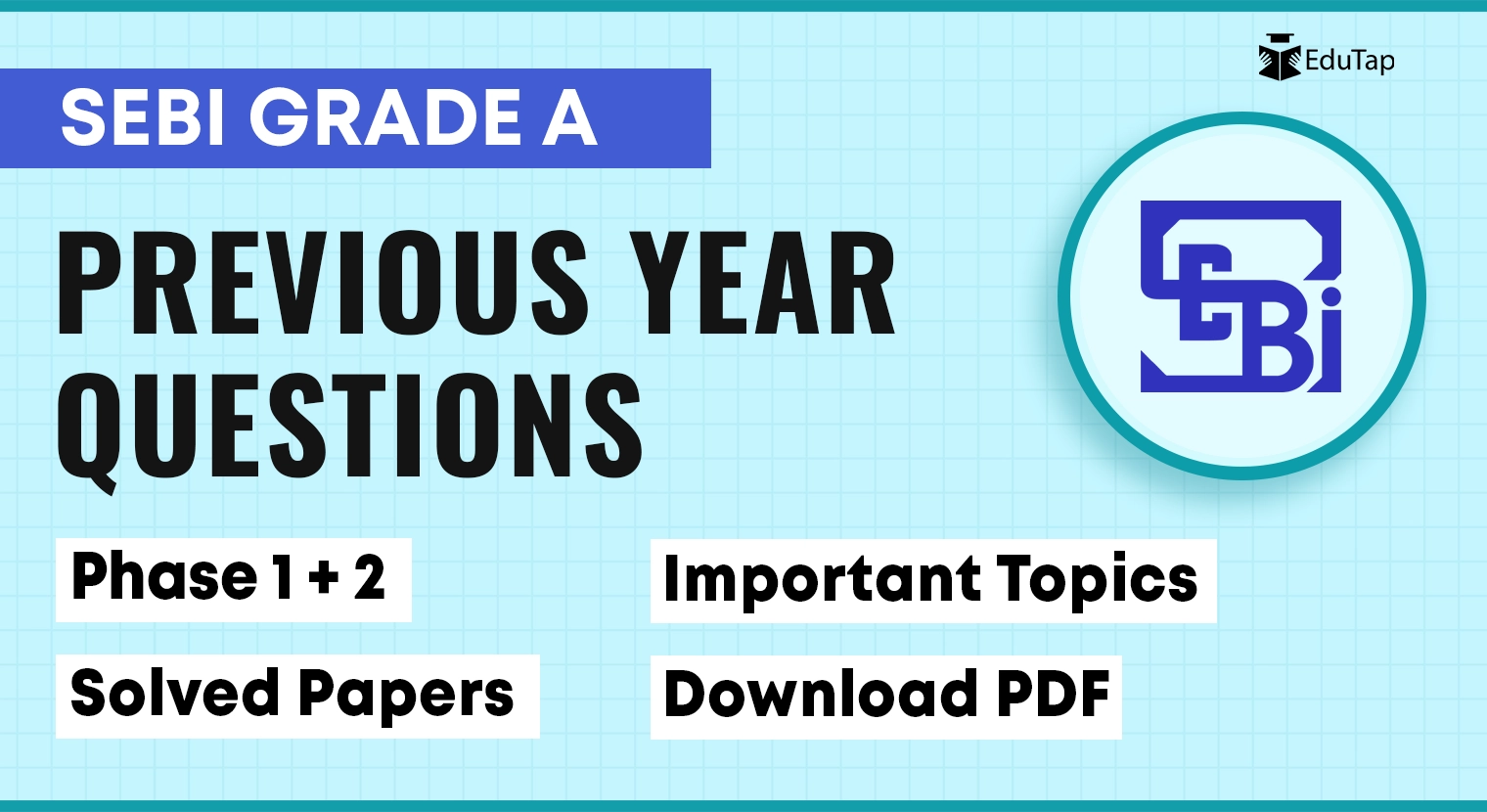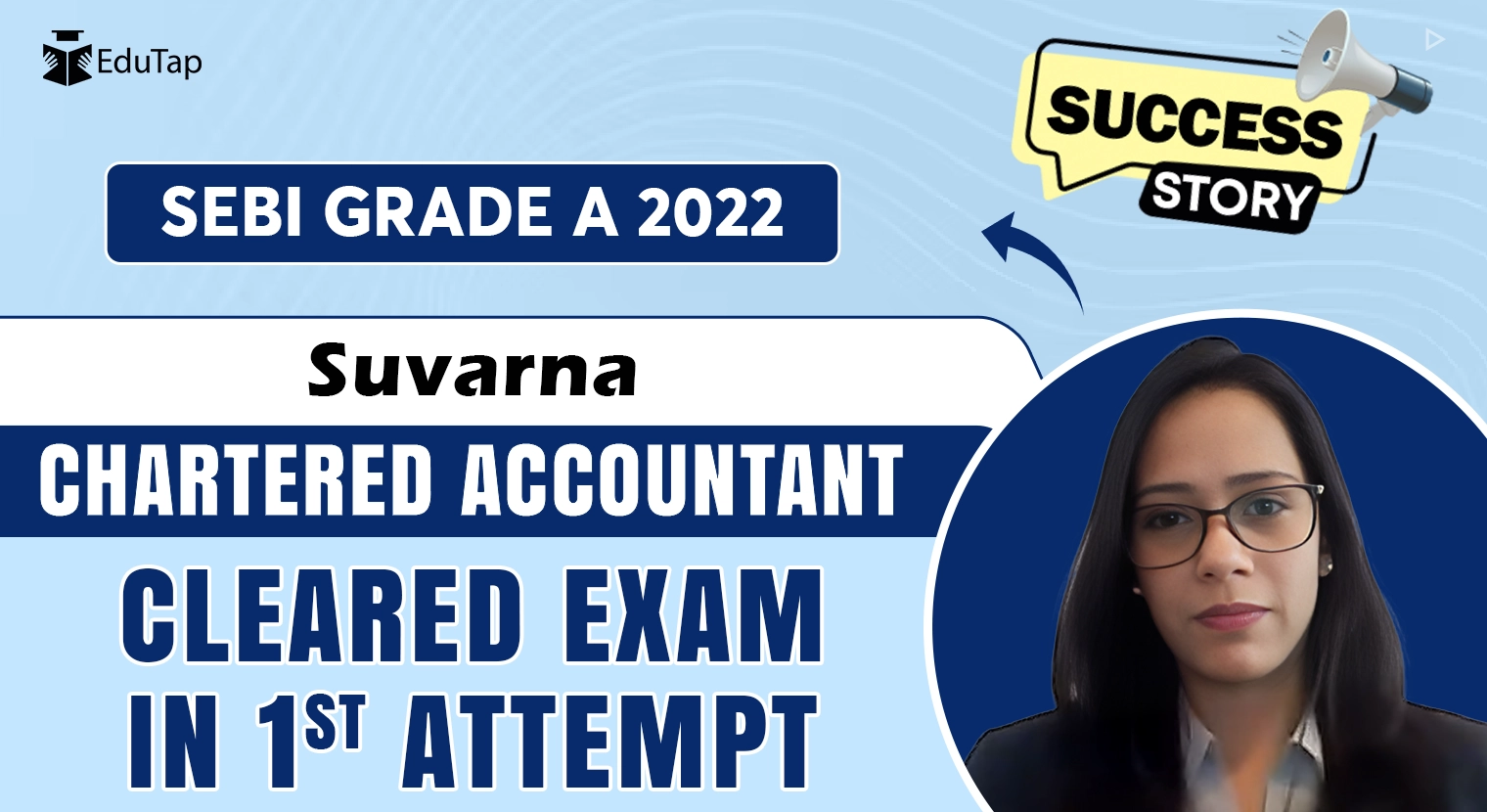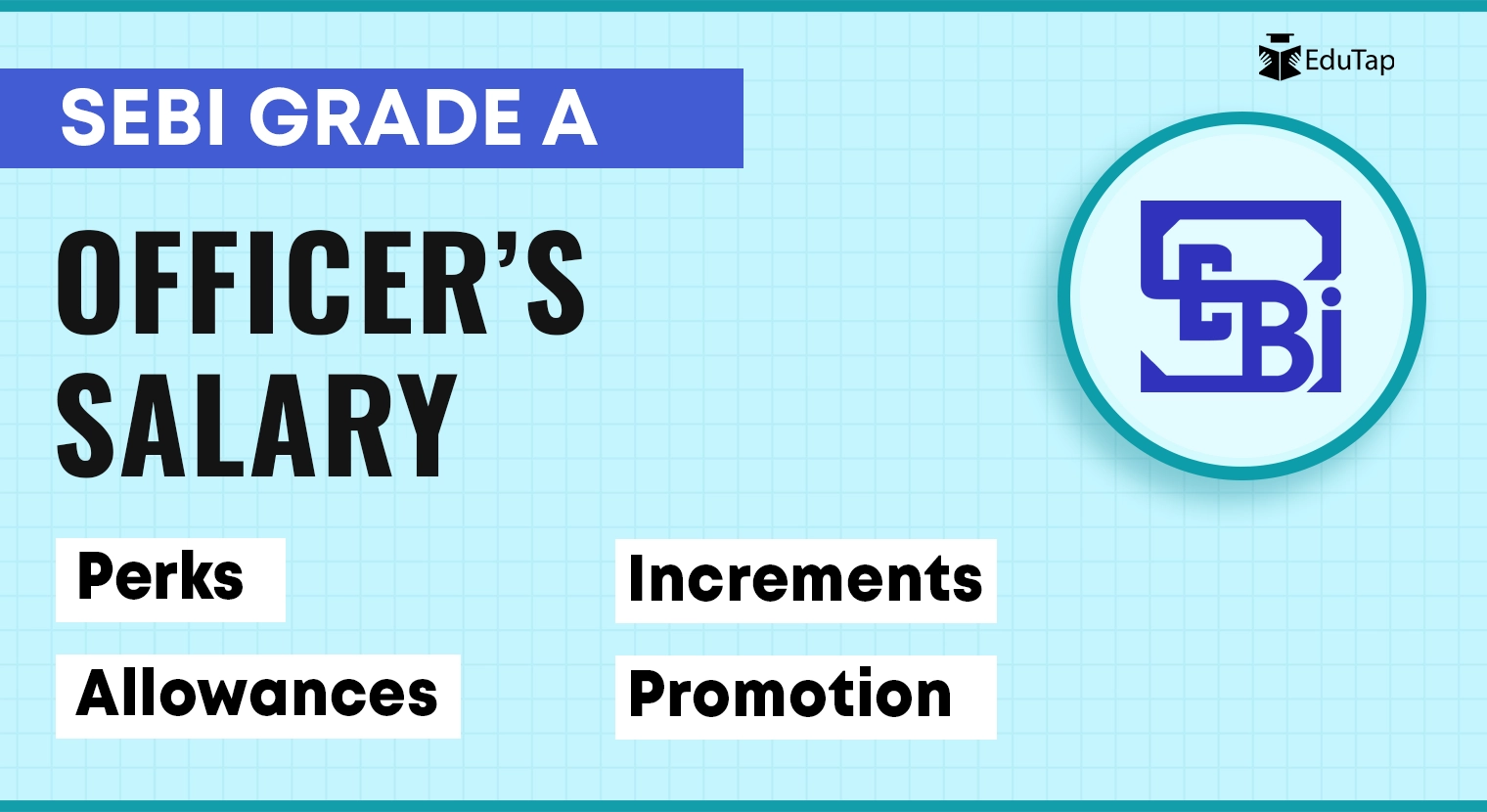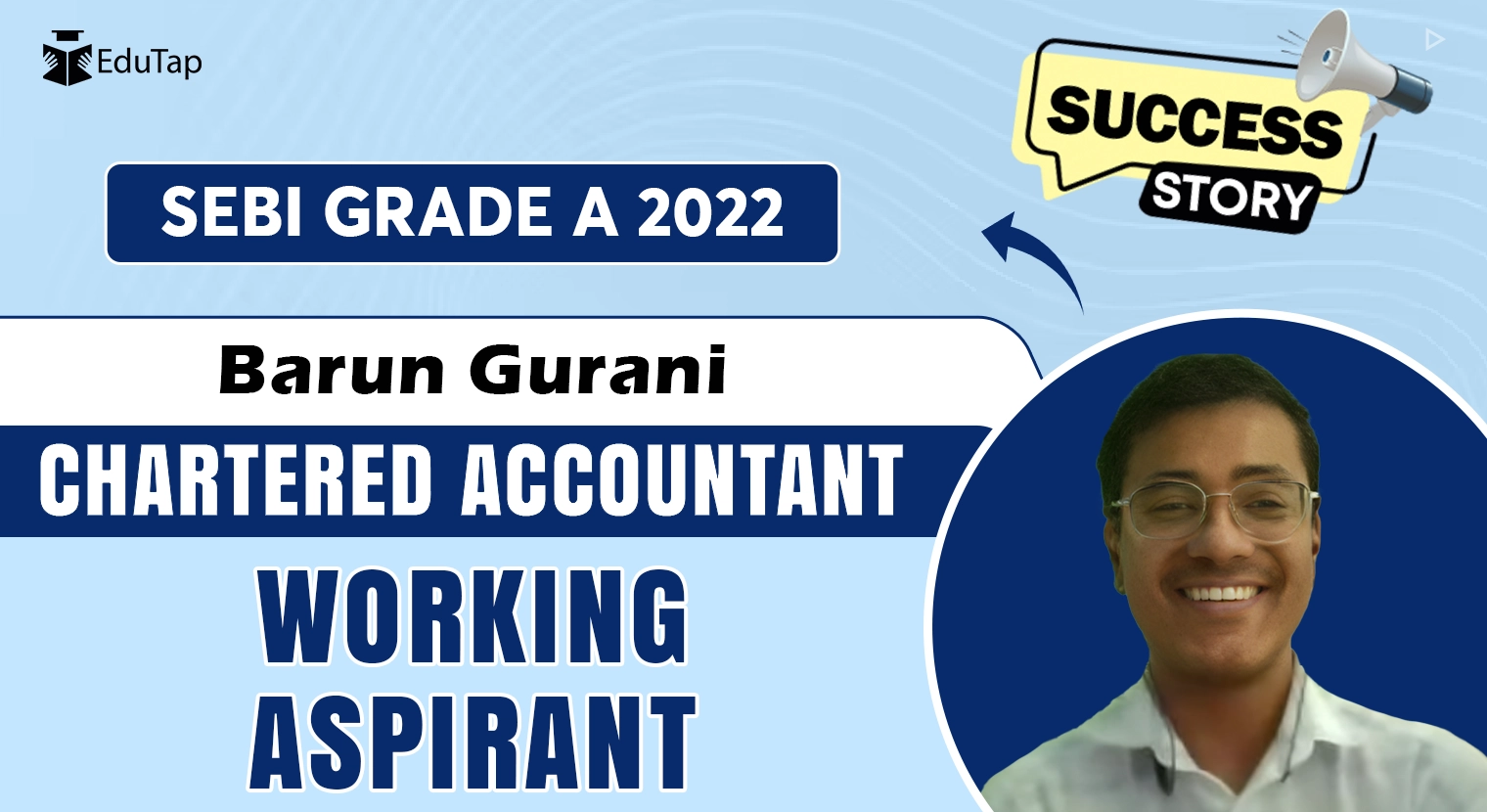Not every success story begins with a traditional university degree. Girish Tiwari, a company secretary by profession and an IGNOU graduate, has proven that focused preparation can conquer even the most challenging exams. In his very first attempt, Girish cracked the SEBI Grade A exam, a reputed position in the financial sector.
Let’s dive into his preparation experience and the strategies to learn how you can also crack the SEBI Grade A exam.
Strategy for Phase 1 Paper 1 of SEBI Grade A
With limited time (around 1.5 months), Girish adopted a smart approach. He focused on his strengths, that is, English and Quantitative Aptitude. Since Reasoning and Current Affairs were not his strong subjects, he minimised the time spent on them.
Here’s a breakdown of his strategy.
- English and Quant: Benefitting from his existing knowledge of a commerce background, Girish targeted his maximum time strengthening these two subjects.
- Reasoning: He recognized that in-depth focus and building a foundation in Reasoning wouldn’t deliver high returns within a limited time. He only invested enough time to help him clear the cut-off.
- Current Affairs: Starting in September, Girish made notes from various magazines (including Edutap resources) and newspapers. He focused on creating notes that summarise key points and topics likely to be tested.
Girish strongly emphasises the importance of a personalised approach. He did not blindly follow popular trends and focused on building a strategy that worked best for him.
SEBI Grade A Phase 1 Paper 2 Strategy
Girish’s approach to all 7 components of Phase 1 Paper 2 (Finance, Management, Economics, Company Law, Costing, Commerce, and Accounts) included his use of past papers, note-taking strategies, and identifying his weaker areas.
Let’s have a more clear look at his strategy.
Finance Strategy for SEBI Grade A
- Girish analysed past exam papers to understand the level and nature of questions asked in Finance.
- Since his company secretary background equipped him with a strong foundation in finance, Girish concentrated on revising core concepts from various study materials.
- He created comprehensive notes on all finance-related topics, ensuring efficient revision.
- While acknowledging the importance of advanced topics like ratios and risk management, Girish strategically chose to prioritise core concepts that he had an understanding of for maximising his score within the limited time available.
Management Strategy for SEBI Grade A
- Similar to Finance, Girish analysed past papers to identify question trends in Management.
- He observed a significant change in the difficulty level of Management questions compared to previous exams. This highlights the importance of staying updated on exam trends.
Economics Strategy for SEBI Grade A
- Girish had always had an interest in Economics, which in addition to his commerce background from Class 11 & 12, made studying this section less challenging.
- He actively took mock tests to solidify his understanding of Economics concepts.
Companies Act Strategy for SEBI Grade A
- Being a company secretary, companies act was Girish’s strong point. He didn’t require extensive preparation as he was already familiar with the legal complexities.
- Girish recommends strictly adhering to the SEBI-prescribed syllabus and prioritising important chapters.
Girish believes that while penalties are important, a deep understanding of sections and timelines is more valuable. Memorising every penalty is less important and can be strategically left out if time is limited.
Costing and Accounting Strategy for SEBI Grade A
- Costing and accounting were his weaker areas. He recognized this and actively addressed it through practising mock tests and numerical problems.
- This targeted approach ensured preparedness for both Phase 1 and Phase 2 (given the short gap between them).
Now let’s look at how Girish prepared for Phase 2 of his SEBI Grade A exam.
SEBI Grade A Phase 2 Paper 1 Strategy
Following is the breakdown of his approach for Paper 1 of Descriptive English.
Preparation and Resources
- Essay Writing: Recognizing the importance of essays in Phase 2, Girish compiled a list of 25 potential essay topics based on various resources like past exam papers and SEBI guidelines. He practised writing essays on each topic to hone his writing skills and improve his typing speed.
- Reading Comprehension: Finding appropriate practice material proved challenging. He maximised his chances by taking two mock tests, rewriting the answers multiple times to enhance speed and refine his approach.
- Habitual Reading: Girish’s existing habit of reading newspapers daily significantly improved his reading comprehension speed and vocabulary, which benefited his performance in all sections, including precis writing.
- Precis Writing: Girish leveraged online resources, particularly YouTube channels like Edutap’s faculty tutorials, to grasp the nuances of precise writing and summary writing.
Essay Writing Tips
- Topic Selection: While Girish wrote essays on a wide range of topics, he emphasised the importance of choosing relevant topics from reliable sources like past exam papers and SEBI guidelines. Current affairs topics gleaned from newspapers were another valuable option.
- Time and Word Limit: Girish strictly adhered to the word limit (around 200 words) and focused on clear, concise writing, avoiding overly complex structures or flowery language. He also emphasised including relevant data to bolster arguments.
Key Takeaways
- Invest time in practising essay writing based on relevant topics.
- Utilise online resources and tutorials for precis writing.
- Develop strong reading comprehension skills through regular practice.
- Prioritise completing all sections within the time limit, even if it means sacrificing some detail.
Girish acknowledged the importance of excelling in Phase 2 Paper 1 because unlike Paper 2, it offered greater control over performance. He focused on completing all sections, even sacrificing some detail in reading comprehension due to time constraints.

SEBI Grade A Phase 2 Paper 2 Strategy
Having cracked Phase 1, Girish now focused more on the numerical-oriented and conceptually challenging Phase 2 Paper 2.
Here’s a breakdown of his strategies for each subject:
Finance Strategy for SEBI Grade A
- While Phase 1 emphasised past paper analysis for Finance, Phase 2 demanded a deeper understanding of numerical applications. Girish shifted his focus accordingly, practising numerous mock tests provided by Edutap and other online resources.
- The strong theoretical foundation built during Phase 1 preparation helped him better approach the numerical problems in Phase 2.
Management Strategy for SEBI Grade A
- Recognizing the tricky nature of management questions, Girish rejected the rote memorization approach.
- Instead, he focused on developing his problem-solving skills and applying his practical knowledge to analyse situations from a manager’s perspective.
Commerce and Accounts Strategy for SEBI Grade A
- The number and complexity of numerical questions during the final exam made attempting all of them impractical.
- Girish adopted a strategic approach, prioritising questions he could solve quickly and efficiently within the given timeframe.
- He acknowledged the difficulty level and focused on maximising his score within his limitations.
Economics Strategy for SEBI Grade A
- SEBI’s exam format for Economics delved deeper into technical concepts.
Girish’s existing background in economics was beneficial, but he also credited EduTap faculty member Kritika Mam‘s comprehensive lectures (including coverage beyond the expected exam level) for his success.
He practised these advanced concepts repeatedly through EduTap’s marathon series.
Costing Strategy for SEBI Grade A
- Recognizing his weakness in Costing, Girish strategically focused on questions he felt confident about attempting.
- He acknowledged the importance of identifying areas where one needs to strategically leave some questions to optimise overall exam performance.
Companies Act Strategy for SEBI Grade A
- The Phase 1 preparation for Companies Act laid a solid foundation, and Girish simply revised his existing physical notes to solidify his understanding further.
- He found the questions in Phase 2 to be direct and straightforward.
Key Takeaways
- Girish’s success highlights the importance of adapting your approach based on the specific demands of each phase and subject.
- Additionally, knowing when to strategically skip challenging sections and questions can be a valuable exam-taking skill.
- Extensive practice through mock tests, drills, and marathon series is crucial for mastering numerical applications.
- Don’t hesitate to explore freely available resources like lectures and practice materials to enhance your understanding.
By combining his existing knowledge, targeted preparation strategies, and effective resource utilisation, Girish successfully conquered the challenges of Phase 2 Paper 2.
Interview Preparation and Experience
Now we reach the interview stage, often considered the most nerve-wracking part of the SEBI Grade A exam process. Let’s explore Girish’s preparation and experience.
Pre-Interview Preparation
Knowing he had ample time (over two months) before the interview, Girish made the most of it. He acknowledged the subjective nature of interviews and the wide range of questions that might be asked. To address this, he focused on preparing for four key areas:
- HR Questions: These questions typically assess a candidate’s personality, motivation, and suitability for the role. Girish prepared for these by taking notes on potential topics.
- Personality-Related Questions: Similar to HR questions, these aim to understand a candidate’s personality, strengths, and weaknesses. Again, Girish used note-taking as a preparation strategy.
- Subject Matter Questions: Testing the candidate’s knowledge of the relevant subjects was another anticipated area. Girish ensured he was well-prepared to answer these questions.
- Personal Information Form: Girish meticulously reviewed and prepared his personal information form, ensuring all details were accurate and presented well.
Interview Preparation: Mock Tests
While the real interview experience differed from the mock interviews, Girish found the mocks valuable for several reasons:
- Mock interviews helped Girish adjust to the interview environment and break the ice, reducing his initial nervousness.
- Through mock interviews, Girish pinpointed areas where he could improve his communication skills.
- Mock interviews provided valuable practice in answering questions effectively and articulately.
- Mock interviews covered a wide range of topics, including technical, HR, and personality-related questions. This broad exposure prepared Girish for various scenarios.
The Interview Experience
The actual interview experience differed from mock interviews. Girish felt the interview board was more lenient during mock sessions, whereas the real interview felt more rigorous. The chairman, in particular, focused on in-depth questioning, probing Girish’s reasons for pursuing only the SEBI exam and his career aspirations. The interview lasted 20-25 minutes.
The interview lasted approximately 20-25 minutes. The panel consisted of a chairman, an HR representative, and other members. The questions included:
- The panel inquired about Girish’s coaching experience, exam preparation strategies, and interview preparation.
- A panel member asked about Girish’s strengths and weaknesses.
- One of the panel members also delved into economics and finance, asking about currency depreciation and its causes.
Despite the differences between the mock interviews and the real thing, Girish credited the mocks with significantly improving his interview performance. They helped him feel more comfortable in the interview environment, refine his communication skills, and prepare for a variety of potential questions.
You can listen to Mohit’s journey in his own words in the following video.
A Message to Future Aspirants
Following are a few tips that Girish has for all future aspirants of SEBI Grade A exam.
Consistent Revision
Girish emphasises the importance of revision throughout his preparation journey. Creating well-organised notes allows you to revisit key concepts and information efficiently, especially during the crucial last-minute revision phase. Digital notes are an option, but handwritten notes can be particularly helpful for solidifying understanding. Remember, the same subjects appear in both phases, but your approach to them needs to adapt based on the specific demands of each phase.
Practice Numericals
The focus on numerical applications in Phase 2 is significant. Practise mock tests, drills, and marathon series offered by various coaching institutes to hone your numerical skills. Girish anticipates that coaching institutes will place greater emphasis on numericals based on the recent exam trends.
Appear for Mock Interviews
Mock interviews provide a valuable opportunity to practise your communication skills, identify weaknesses, and gain exposure to diverse question styles (technical vs. general). While the actual interview might differ, mock interviews offer a well-rounded preparation experience.
Plan Your Preparation Strategy
Strategic planning is crucial. Dedicate more time to challenging subjects and minimise time spent on your strengths. While Girish’s background as a company secretary granted him an advantage in some areas, he emphasises the importance of a minimum one-year dedicated preparation period. This allows for thorough coverage of all subjects and avoids the stress of last-minute cramming. Entering the exam cycle requires a full commitment to maximise your chances of success.
Costing Strategies
For those struggling with costing, Girish suggests focusing on frequently asked topics like marginal costing and standard costing. Utilise freely available resources like the marathon series offered by Edutap or other institutes. Analyse past exam papers to identify frequently tested areas. Remember, Phase 1 focuses on theory, while Phase 2 delves deeper into numerical applications.
Note Making
Girish emphasises the power of physical note-taking. He meticulously compiled notes on penalties, important sections, and timelines for company law, making revision efficient. This approach proved successful and can be a valuable strategy for other aspirants.
Conclusion
Girish’s success story highlights the importance of a well-structured study plan, consistent revision, and effective time management. Don’t be discouraged by initial difficulties. Embrace mock tests and interviews as learning opportunities. Most importantly, maintain a positive attitude and persevere through the process. Remember, success in SEBI Grade A can be achieved within a few attempts with focused dedication.
